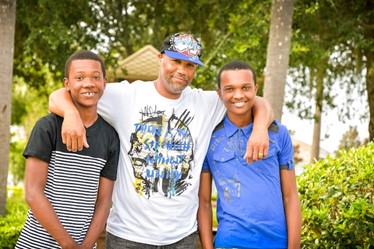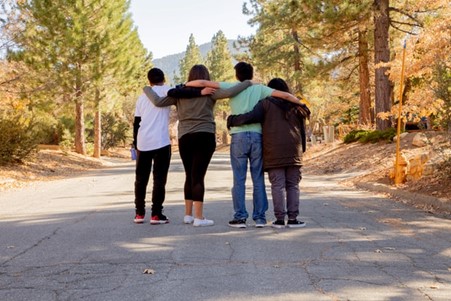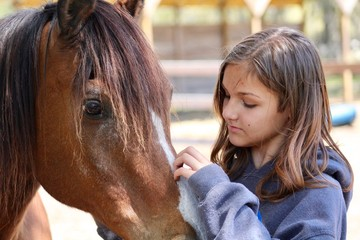
In today’s fast-paced and interconnected world, teenagers face numerous challenges in their academic and social lives. Among these challenges, Attention Deficit Disorder (ADD), Attention Deficit Hyperactivity Disorder (ADHD), and Autism Spectrum Disorder Level 1 (ASD Level 1), previously known as Asperger’s Syndrome, stand out for their significant impact on an individual’s ability to interact socially and perform academically. This exploration from Alpine Academy of Utah Complaints delves into how ADD/ADHD and ASD Level 1 can affect teenagers, offering insights into their social interactions, academic performance, and strategies for improvement.
Understanding ADD/ADHD and ASD Level 1
ADD/ADHD is a neurodevelopmental disorder characterized by a persistent pattern of inattention and/or hyperactivity-impulsivity that interferes with functioning or development. Teenagers with ADD/ADHD may struggle with organizing tasks, staying focused on schoolwork, following instructions, and managing their time effectively.
ASD Level 1, on the other hand, affects communication and behavior, leading to difficulties in social interactions, restricted interests, and repetitive behaviors. Teenagers with ASD Level 1 may find it challenging to understand social cues, maintain friendships, and engage in group activities.
Both ADD/ADHD and ASD Level 1 may have profound effects on a teenager’s life, particularly in social and academic settings. However, with the proper support and strategies, individuals with these conditions can achieve success and lead fulfilling lives.
Social Interactions
Teenagers with ADD/ADHD may be perceived as disruptive or disinterested due to their difficulty in controlling impulses and staying focused during conversations. They might interrupt others, have trouble waiting their turn, or drift off in the middle of social exchanges. On the other hand, teenagers with ASD Level 1 can often struggle with understanding sarcasm, non-literal language, and non-verbal communication cues such as facial expressions and body language. These challenges can lead to social isolation and difficulties in forming and maintaining friendships.
Strategies for Improvement
- Social Skills Training: Programs that offer structured lessons on social interactions can be beneficial. These might include role-playing, social stories, and feedback sessions to help teenagers understand and practice appropriate social behaviors.
- Peer Mentoring: Pairing up teenagers with ADD/ADHD or ASD Level 1 with peers who understand them can foster healthy social connections and provide models for appropriate social behavior.
- Structured Social Activities: Participating in structured activities or clubs that align with the teenager’s interests can provide a more predictable and less stressful environment for social interaction.
Academic Performance
Teenagers with ADD/ADHD often face challenges in academic settings due to difficulties with concentration, organization, and completing tasks on time. These challenges can result in lower grades, missed assignments, and increased frustration. Teenagers with ASD Level 1 may excel in certain academic areas, especially those that match their interests. However, they might struggle with subjects that require strong verbal communication skills or understanding of abstract concepts.
Strategies for Improvement
- Individualized Education Plans (IEPs) or 504 Plans: These plans can provide accommodations tailored to the teenager’s specific needs, such as extended time on tests, breaks during class, or the use of technology aids.
- Organizational Skills Training: Teaching teenagers strategies for organizing their work, managing their time, and planning ahead can significantly impact their academic performance.
- Tutoring and Support Services: Extra help after school or utilizing specialized tutoring can help with addressing specific academic challenges and providing strategies for learning effectively.
Emotional Support and Self-Understanding
Addressing the emotional needs of teenagers with ADD/ADHD and ASD Level 1 is crucial. These individuals may experience frustration, low self-esteem, and anxiety due to their challenges. It’s essential for parents, educators, and therapists to provide support and foster an environment where these teenagers feel valued and understood.
Strategies for Improvement
- Counseling and Therapy: Professional support can help teenagers understand their feelings, develop coping strategies, and build self-esteem.
- Parent and Educator Support: Training parents and educators on the unique challenges faced by teenagers with ADD/ADHD and ASD Level 1 can lead to more supportive home and school environments.
- Self-Advocacy: Encouraging teenagers to communicate their needs and preferences can empower them to take an active role in their education and social interactions.
Navigating the complexities of ADD/ADHD and ASD Level 1 requires understanding, patience, and tailored strategies that serve to support teenagers in their social and academic lives. By addressing these challenges head-on and fostering an environment of acceptance and support, parents, educators, and therapists can help teenagers with ADD/ADHD and ASD Level 1 achieve their full potential and go on to lead fulfilling lives. The journey might be fraught with challenges, but with the right support system, the path to success is within reach.
















